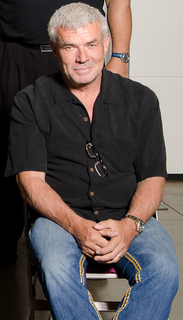A Quote by David Sedaris
Most people, or at least most of the people that I've come into contact with, would like to be written about.
Related Quotes
Africa and its people are the most written about and the least understood of all of the world's people. This condition started in the 15th and the 16th centuries with the beginning of the slave trade system. The Europeans not only colonialized most of the world, they began to colonialize information about the world and its people.
People who watch 'Fox News,' you may say, and this is anecdotal, but they are passionate about it. In the most unlikely places, like down in Soho where I used to live, people would come up to me and thank me for it. People I didn't know from a bar of soap. People appreciate that at least they're being heard. It is much more watchable.
That the things that have impacted me most are not news articles written by older people that I would have no relation to; the things that impact me most are things written by people closer to my age. And I wanted to write things in a way where somebody my age could read it and feel like they are holding somebody's hand and be with somebody.
There are some really great books that have been written about slavery, but I don't think that the discourse about it in society has been very accurate or healthy. I don't think we've come up with ways to tell it that don't insult people or hit them in the wrong way. Part of the problem is that most people don't really understand what slavery was anyway. Most white people didn't own slaves. Slavery was a way of life, just like driving cars is a way of life now. It doesn't mean that it was right.
Imagine the people who believe such things and who are not ashamed to ignore, totally, all the patient findings of thinking minds through all the centuries since the Bible was written. And it is these ignorant people, the most uneducated, the most unimaginative, the most unthinking among us, who would make themselves the guides and leaders of us all; who would force their feeble and childish beliefs on us; who would invade our schools and libraries and homes. I personally resent it bitterly.
Just look at the list of who the lowest-paid people are. Pediatricians are at the bottom. You would also look at internists. You would look at psychiatrists. You would look at family physicians, HIV specialists. People who take care of chronic illnesses by seeing people carefully over time, those are the people who get the least money. The people who have the most are people like orthopedic surgeons, interventional cardiologists. And my point isn't that there is something wrong with heroism.
You know, it's a funny thing about writers. Most people don't stop to think of books being written by people much like themselves. They think that writers are all dead long ago--they don't expect to meet them in the street or out shopping. They know their stories but not their names, and certainly not their faces. And most writers like it that way.
Which countries contain the most peaceful, the most moral, and the happiest people? Those people are found in the countries where the law least interferes with private affairs; where the government is least felt; where the individual has the greatest scope, and free opinion the greatest influence; where the administrative powers are fewest and simplest; where taxes are lightest and most nearly equal
Many people theorize poverty, but so many elements of poverty, individually, for most people who theorize about poverty would be really difficult to even comprehend the individual things. Just take homelessness. If you are homeless, what does it mean not to have a post box where people can contact you; what does it mean not knowing where you're going to sleep at the end of the day; what does it mean not having a place where you can store what little you might possess. So dealing with homelessness in itself is a huge thing for most people who are commentators [on] or benefactors to poverty.
We don't talk about that at all as a country. I think that most people assume that there's nothing they could do if a nuclear bomb went off in their city. And that's just not true. Most people would survive most terrorist nuclear attacks because the bombs would likely be much smaller than those we were dealing with in the Cold War.






































